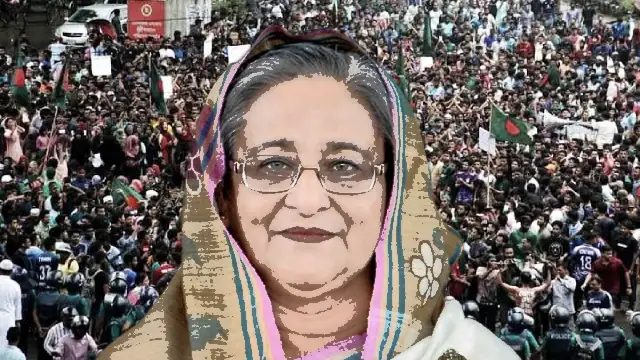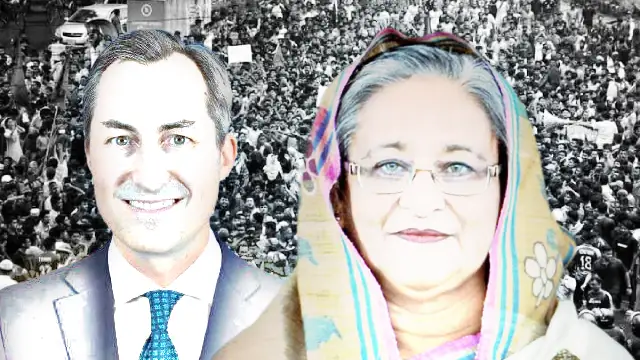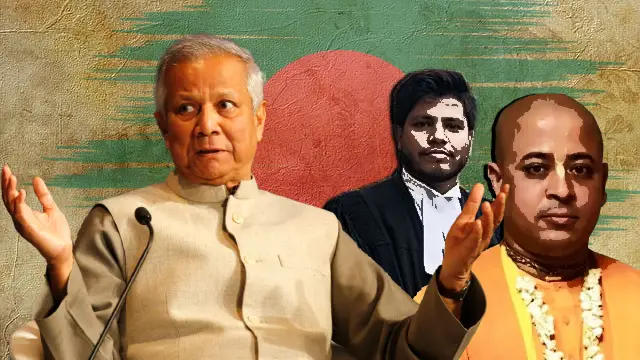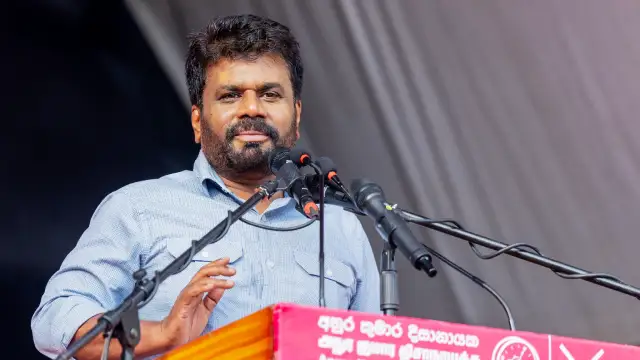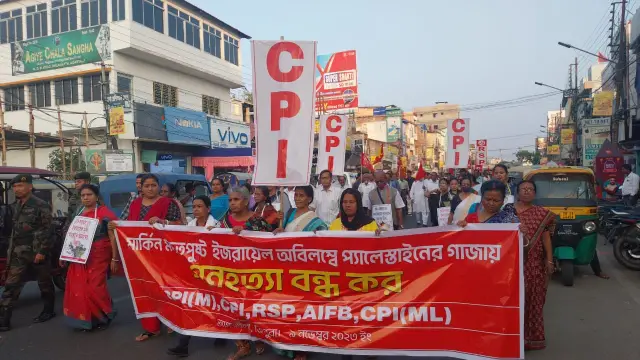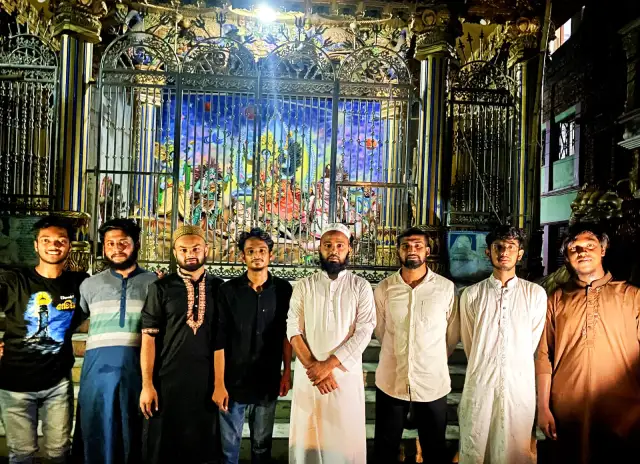As violent clashes between the government and students and youth entered the fifth day in Bangladesh, killing over 75 and injuring over 2,000, the protests are no longer solely about reforms in the quota system applicable to government jobs. The protesters are now targeting Prime Minister Sheikh Hasina’s government and demanding her resignation.
“To have dialogue with bullets is not possible, it is better to die for me,” said Asif Mahamud, one of the coordinators of the anti-reservation movement, declining the government’s offer for talks.
“I can’t show the audacity to put a chair and table on the blood and drink tea,” Mr Mahamud wrote on his Facebook.
Protesting students are quoting from Ms Hasina’s father, the iconic founder of Bangladesh Mujibur Rahman’s famous speech during the Mukti Juddho (Liberation War)—“The bloodstains have not dried yet; how could I walk on my brothers’ blood to take part in a dialogue?”
PM and protesters label each other Razakar
‘Razakar‘ is a derogatory term in Bangladeshi politics. Its literal Persian meaning is “volunteer”, but in Bangladesh, it refers to a notorious militia that helped the Pakistani Army—during Islamabad’s colonial occupation of the country from 1947 to 1971—and participated in various genocides and war crimes during the Mukti Juddho.
After Ms Hasina labelled the students protesting the 30% controversial reservations for the third-generation descendants of Mukti Joddhas (liberation soldiers) as Razakars, the students took it to heart, and the Razakar slogan gained popularity.
The slogan—“Tumi ke ami ke razakar razakar, ke boleche ke boleche soirachar soirachar, cheyechilam odhikar, hoye gelam razakar” (Who are you and I? Razakar, Razakar. Who said it? The autocrat. We demanded our rights and were labelled as Razakar) gained currency across the country’s campuses.
A wounded teenager named Ibrahim Nirob said in a viral social media video, “Are we all Razakar? Nobody here is Razakar. Why did the PM call us Razakar?”
The ruling Awami League accuses the protesters of being part of a conspiracy hatched by the major opposition party, the Bangladesh Nationalist Party (BNP), and their ally, the far-right Jamaat-e-Islami (JeI).
Historically, these parties are pro-Pakistan and pro-West. The BNP continues to seek western support against Ms Hasina’s government.
The Awami League has also indicated the possibility of foreign influence behind the unrest.
The BNP and JeI deny the allegations and blame the Awami League for the erosion of democracy in the country and the overall discontent of the people.
How was the BNP-JeI rule for Bangladesh?
The BNP normalised the JeI as a political outfit in Bangladesh after the organisation suffered setbacks following Bangladesh’s liberation due to its ties with Pakistani occupiers and its role in carrying out atrocities against the liberation warriors.
The BNP and the JeI allied and ruled Bangladesh between 1991 and 1996, and from 2001 to 2006. During its reign, the BNP crushed the Awami League and leftist parties. Even then, Ms Hasina, then an Opposition leader, survived four deadly attacks targeting her between 2000 and 2004.
During BNP-JeI rule, a significant number of Hindu minorities fled to India. The first census of independent Bangladesh in 1974 recorded 13% of the population as Hindu. According to the latest census in 2022, the Hindu population in Bangladesh has fallen to 8%. One reason for this fall is a large-scale migration caused by communal violence.
The geopolitical contest over Bangladesh
Although the US happens to be one of the largest markets for Bangladesh’s garments—one of the key drivers of its frail economy—Washington DC remains sceptical due to Bangladesh’s existing ties with China and proximity to Russia.
As Chinese investments in Bangladesh grow, in 2021 the US sanctioned the country’s paramilitary force the Rapid Action Battalion (RAB) on charges of human rights violation. Ironically, accusations of fake encounters by RAB have existed since its inception. It was trained by the US itself in 2004 during the BNP’s rule.
While since 2021, the US has been wooing Bangladesh to join the “Indo-Pacific” alliance, especially the Quad-plus, Dhaka remained nonchalant.
Despite having a full-fledged discussion with the US and British officials in Dhaka, Bangladesh remained elusive and even showed interest in joining the BRICS.
During the last general elections in Bangladesh, the conflict between Washington DC and Dhaka became quite pronounced.
The US envoy to Bangladesh, Peter Haas, overtly supported the BNP and pressured Ms Hasina to conduct “free and fair elections”.
However, Ms Hasina refused to conduct the election under a caretaker government, as demanded by the BNP.
Consequently, the BNP and other major opposition parties boycotted the last election.
While Ms Hasina’s Awami League swept the elections, questions have been raised regarding the fairness of the elections as most of the Opposition, including the communists, boycotted the polls.
While the US remained sceptical about Bangladesh, Ms Hasina recently went to China seeking a credit of $5bn to cover the budget deficit, which Beijing refused due to Ms Hasina handing over a crucial river project to India and allowing New Delhi to run a train through a bridge, which was funded by China.
Although China and Bangladesh portrayed the visit as successful, Ms Hasina’s return from Beijing midway through the meeting proved that the government couldn’t get what it wanted, but only a $600m assistance. The joint declaration didn’t specify any further gains for Dhaka.
While it’s alleged by sources that the BNP officials met the Chinese envoy in Dhaka this week, China has refused to take any side in the ongoing protests.
Speaking to the press in Beijing, the Chinese Ministry of Foreign Affairs spokesperson Lin Jian said, “China noted what happened recently in Bangladesh. This is Bangladesh’s domestic affair and we believe that the government of Bangladesh will properly handle it and uphold national solidarity and stability.”
However, the US Embassy in Dhaka has taken a proactive role in criticising Ms Hasina, although indirectly.
Matthew Miller, the US State Department spokesperson, said, “We continue to monitor the violence that broke out during the student protests in Dhaka and continue to urge that protests be peaceful and continue to condemn any violence against peaceful protests. We condemn any violence against peaceful protests.”
This way, Ms Hasina has irked both China and the US, whose role behind the current unrest can’t be ruled out by experts.
The complex scenario
Ms Hasina has been ruling Bangladesh since 2009. She has been accused of massive violence during every election.
Corruption charges, nepotism, the unnecessary use of armed forces against the people and the allegations of bullying by Awami League workers have made Ms Hasina unpopular in Bangladesh.
While the BNP’s rule was extremely pro-Pakistan and anti-India, the BNP-JeI camp labels the Awami League as India’s stooge.
Ms Hasina’s close ties with India have been criticised by others as well, and a large-scale “Boycott India” campaign was launched a few months ago.
Some of the pro-West Opposition accuse Ms Hasina of providing undue advantages to India, which, they further allege, ensures New Delhi safeguards Awami League from the West.
Opposing Ms Hasina, Islamic forces and their narrative have become stronger among the people, which is anti-India, anti-Hindu, pro-West and pro-theocratic state.
However, this isn’t the whole picture. Liberal, leftist students are very much involved in the anti-Hasina protests. At the same time, they are opposing fundamentalist forces in the movement.
Mir Mugdha, the student leader who was shot dead by police, posted on Facebook warning the student wing of JeI and BNP, “Don’t make the protest your political party’s protest. If you had guts, you would have come earlier. Don’t spoil the motive of the movement. Don’t expose your true face. If you are a student, come as a student. We need students in our movement, not any leaders driven by vested interests.”
Incidentally, this was the last post by Mr Mugdha.
Hasina is forcing Bangladesh towards a full Islamic state and the West
Stubbornness, misbehaviour, and the killing of her citizens have made Ms Hasina unpopular. The situation has been aggravated by the sloth economy, growing unemployment, an incessant crisis in agriculture and rising inflation. Ms Hasina’s government couldn’t solve these problems.
The growing discontent against her highly autocratic government is forcing the people towards Westerners and their supporters in Bangladesh’s politics.
How can peace and stability be achieved by stirring the country’s people, especially young students?
Rather than resolving the issue through dialogue, Ms Hasina employed the students’ wing of her party to suppress the movement, which resulted in unleashing violence across the campuses in the country and complicated the situation.
Now, the discontent has intensified to such a level that even by deploying armed forces, Ms Hasina is unable to control the mass anger.
The sheer failure of her government in peacefully resolving the concern of the students over quota isn’t merely raising questions on her statesmanship but also on the future of Bangladesh as the communal forces, backed by the West, are trying to seize power using the chaos.
It is evident that after this oppression, it will be very difficult for Ms Hasina to politically survive.
But the question haunts many: if the Awami League government is overthrown, will the minority Hindus survive? Will Bengali nationalism survive Islamic onslaught? Will Bangladesh retain its strategic autonomy, or will it become a US neo-colony?
Managing Editor of East Post Bangla. A geopolitical and socio-economic analyst and columnist. He writes extensively on global affairs and promotes the idea of a multi-polar world order.

